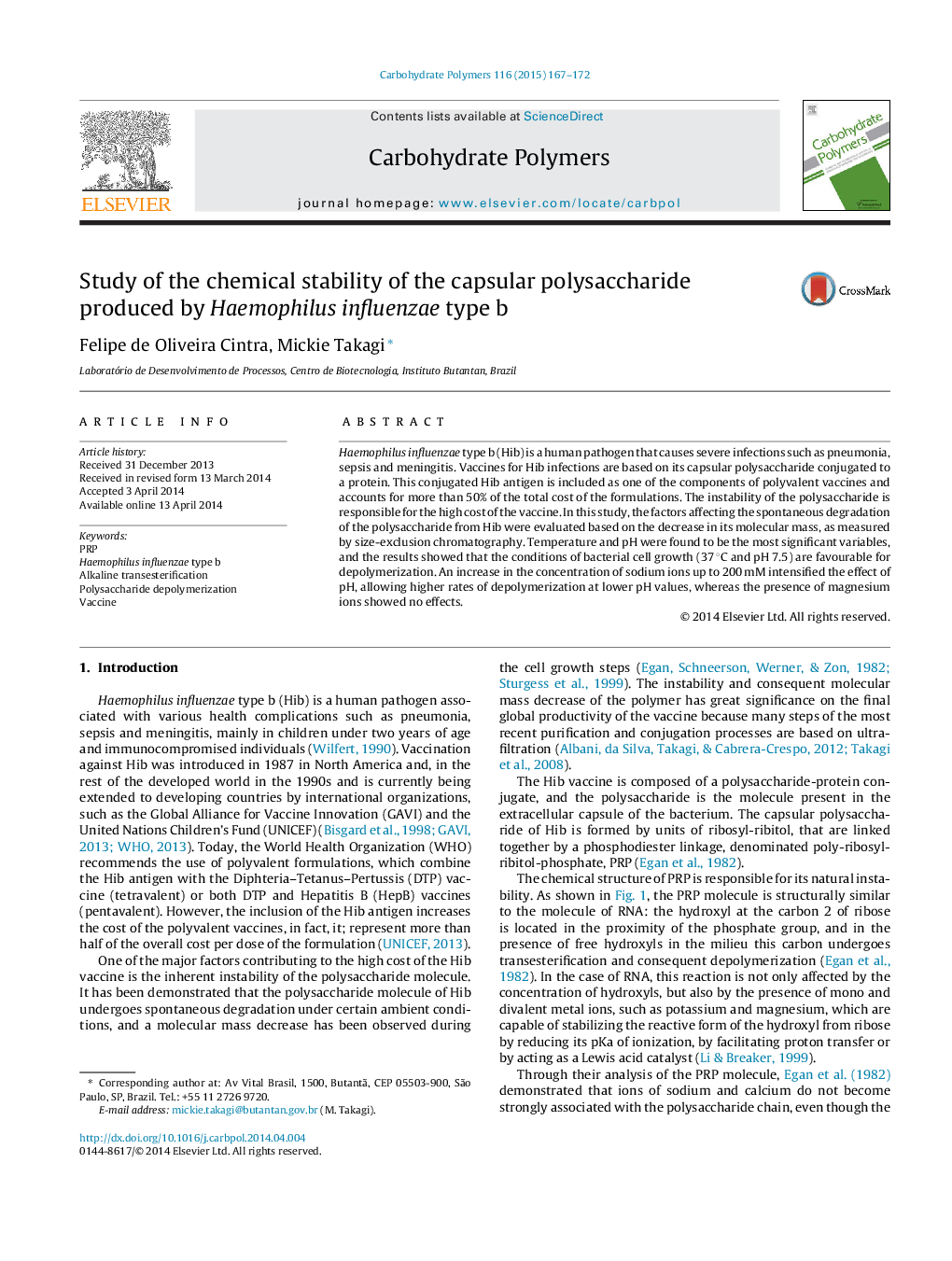| کد مقاله | کد نشریه | سال انتشار | مقاله انگلیسی | نسخه تمام متن |
|---|---|---|---|---|
| 1385679 | 1500642 | 2015 | 6 صفحه PDF | دانلود رایگان |

• Alkali conditions influence the depolymerization rate of PRP.
• Temperature, pH and monovalent ions promote instability of PRP.
• Polysaccharide instability affects recovery and productivity of Hib vaccine.
• Conditions used during cell growth of Hib are favorable to depolymerization of PRP.
• Chemical stability on Haemophilus influenzae b polysaccharide.
Haemophilus influenzae type b (Hib) is a human pathogen that causes severe infections such as pneumonia, sepsis and meningitis. Vaccines for Hib infections are based on its capsular polysaccharide conjugated to a protein. This conjugated Hib antigen is included as one of the components of polyvalent vaccines and accounts for more than 50% of the total cost of the formulations. The instability of the polysaccharide is responsible for the high cost of the vaccine. In this study, the factors affecting the spontaneous degradation of the polysaccharide from Hib were evaluated based on the decrease in its molecular mass, as measured by size-exclusion chromatography. Temperature and pH were found to be the most significant variables, and the results showed that the conditions of bacterial cell growth (37 °C and pH 7.5) are favourable for depolymerization. An increase in the concentration of sodium ions up to 200 mM intensified the effect of pH, allowing higher rates of depolymerization at lower pH values, whereas the presence of magnesium ions showed no effects.
Journal: Carbohydrate Polymers - Volume 116, 13 February 2015, Pages 167–172